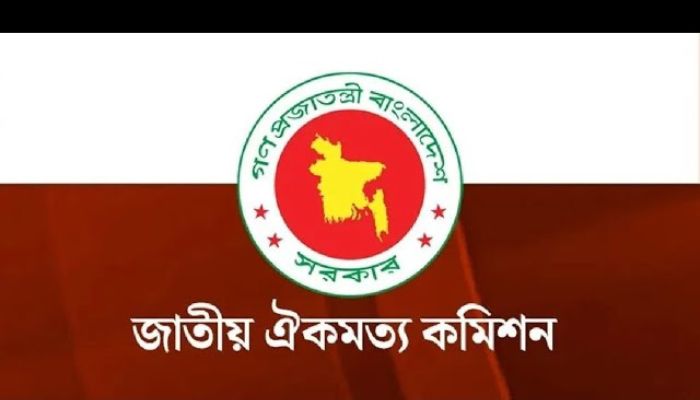
Recent developments have given form to the very fears we hoped would never materialize. Jamaat-e-Islami, by refusing to attend the Consensus Commission meeting and offering dubious justifications for its absence, has openly declared its role as a disruptor in the fragile political balance of Bangladesh. This single act, coupled with the tone and content of their explanation, makes one thing abundantly clear: our collective hope for unity is slipping away, while dangerous possibilities are beginning to surface.
It would be a mistake to see Jamaat’s move in isolation. To truly understand the implications, we must look at the National Consensus Party (NCP), which did attend the meeting. Their post-meeting remarks—eerily echoing Jamaat’s stated rationale—offer a more expansive version of the same narrative. The similarity is too precise to be coincidental. It doesn’t take a seasoned political analyst to recognize that what we are witnessing is a coordinated performance, an orchestration between Jamaat and NCP designed to sabotage any prospect of consensus-building.
This unfolding drama was not entirely unforeseen. Following the high-profile meeting between the Chief Adviser and Tarique Rahman, several analysts warned of potential backlash. However, few anticipated the speed and decisiveness with which this political sabotage would take shape. The swiftness has caught even the most informed observers off guard.
The broader concern lies in the government’s apparent strategy of attempting to politically corner the Bangladesh Nationalist Party (BNP) through state mechanisms, rather than through dialogue and inclusion. Such an approach is not only shortsighted but dangerous. History has shown that political exclusion breeds instability. If the lessons of the past July uprising are to hold any meaning, they must remind us that genuine change cannot be secured by silencing major stakeholders. Ignoring this simple truth is equivalent to political self-destruction—a process akin to digging one’s own grave.
Meanwhile, BNP finds itself in an increasingly precarious position. Since August 5, the party has been publicly and privately humiliated, often with tacit support from state actors. Yet, in the face of relentless criticism and marginalization, BNP has refrained from taking a confrontational stance. This restraint is both notable and telling. It challenges the convenient narrative that BNP is always the aggressor and raises important questions about who is truly destabilizing the democratic space.
There is a growing dissonance between the stated goals of the interim government and the actions of its affiliates. The roles of Jamaat, NCP, and even the caretaker administration often appear contradictory, if not complicit in undermining the very process they claim to uphold. For a population yearning for stability and democratic maturity, this dance of disruption offers little comfort.
Bangladesh stands at a crossroads. The path to lasting peace and political progress lies not in exclusionary tactics, but in inclusive dialogue and respect for dissent. Anything less would not just be a missed opportunity—it would be a national tragedy.